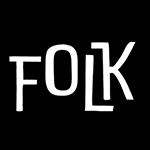"Finding Home" is now available on Amazon.
Lifelong Learning: Keeping Your Mind Sharp and Curious
Lifelong learning and maintaining intellectual curiosity are crucial for achieving higher levels of success and fulfillment, especially in our golden years. As the world continues to evolve, staying mentally active and curious can prepare us for the dynamic opportunities of the Imagination Age. Here’s how lifelong learning can keep your mind sharp and curious, and various ways to stay engaged and intellectually vibrant.
The Importance of Lifelong Learning
Lifelong learning involves continuously seeking knowledge and skills throughout one’s life. Here’s why it’s essential:
- Cognitive Health: Engaging in lifelong learning activities helps maintain cognitive function, improves memory, and reduces the risk of cognitive decline.
- Adaptability: In a rapidly changing world, lifelong learning ensures you remain adaptable and equipped to handle new challenges and opportunities.
- Personal Fulfillment: Pursuing new knowledge and skills brings a sense of accomplishment and joy, contributing to overall well-being and life satisfaction.
- Social Connection: Learning new things often involves interacting with others, fostering social connections and a sense of community.
Ways to Stay Mentally Active
Here are some effective ways to stay mentally active and nurture your intellectual curiosity:
Engaging in New Hobbies
- Creative Arts: Take up painting, drawing, crafting, or any other artistic endeavor. These activities stimulate the brain and enhance creativity.
- Gardening: Gardening is not only relaxing but also involves problem-solving and planning, which keep your mind active.
- Music and Dance: Learning to play a musical instrument or taking dance lessons can improve coordination, memory, and emotional well-being.
Taking Up Online Courses
- Educational Platforms: Websites like Coursera, edX, and Udemy offer a wide range of online courses on topics from science and technology to humanities and arts. These platforms provide flexible learning opportunities that you can pursue at your own pace.
- Language Learning: Apps like Duolingo and Rosetta Stone make learning a new language accessible and enjoyable. Language learning engages multiple areas of the brain, enhancing cognitive function.
Participating in Community Learning Events
- Workshops and Seminars: Attend workshops and seminars in your community on topics that interest you. These events provide opportunities for hands-on learning and social interaction.
- Library Programs: Many libraries offer free classes, book clubs, and lecture series. Take advantage of these resources to explore new subjects and meet like-minded individuals.
- Adult Education Classes: Community centers and local colleges often offer adult education classes on a variety of topics. Enroll in a class to learn something new and stay intellectually engaged.
Reading and Writing
- Diverse Reading: Read books, articles, and magazines on a wide range of subjects. Diverse reading materials stimulate different areas of the brain and provide fresh perspectives.
- Journaling: Keep a journal to reflect on your thoughts, experiences, and learning. Writing regularly enhances cognitive function and helps clarify your thinking.
Exploring Technology
- Digital Literacy: Learning to use new technology, such as smartphones, tablets, and computers, can keep your mind sharp. Technology offers endless opportunities for learning and creativity.
- Virtual Reality: Explore virtual reality (VR) experiences that offer immersive learning opportunities. VR can transport you to new places and provide interactive educational content.
Preparing for the Imagination Age
The Imagination Age is characterized by rapid technological advancements and a focus on creativity and innovation. Here’s how lifelong learning can prepare you for this evolving era:
Embracing Change
- Stay Current: Keep up with the latest developments in technology, science, and culture. Staying informed helps you adapt to new trends and innovations.
- Be Open to New Ideas: Cultivate an open mindset that embraces new ideas and perspectives. This flexibility is essential for thriving in a constantly changing world.
Fostering Innovation
- Think Creatively: Engage in activities that encourage creative thinking, such as brainstorming sessions, mind mapping, and problem-solving exercises. Creative thinking is a key skill for success in the Imagination Age.
- Collaborate with Others: Participate in collaborative projects and group activities. Collaboration fosters innovation by bringing together diverse perspectives and skills.
Enhancing Digital Skills
- Learn Digital Tools: Familiarize yourself with digital tools and platforms that enhance productivity and creativity. Tools like graphic design software, video editing programs, and online collaboration platforms are valuable in the digital age.
- Explore Online Communities: Join online communities related to your interests. These communities offer support, resources, and opportunities for collaborative learning.
Conclusion
Lifelong learning and intellectual curiosity are vital for keeping your mind sharp, staying adaptable, and achieving personal fulfillment. By engaging in new hobbies, taking up online courses, participating in community learning events, and exploring technology, you can prepare yourself for the dynamic opportunities of the Imagination Age.
Start today by incorporating some of these activities into your routine. Embrace the joy of learning and discovery, and let your curiosity lead you to new heights of creativity and success. Remember, it’s never too late to cultivate a curious mind and live a life filled with endless possibilities.
Allow this Muse to inspire your next creative work.
Source: OpenAI. (2024). ChatGPT (4o) [Large language model]. https://chatgpt.com
